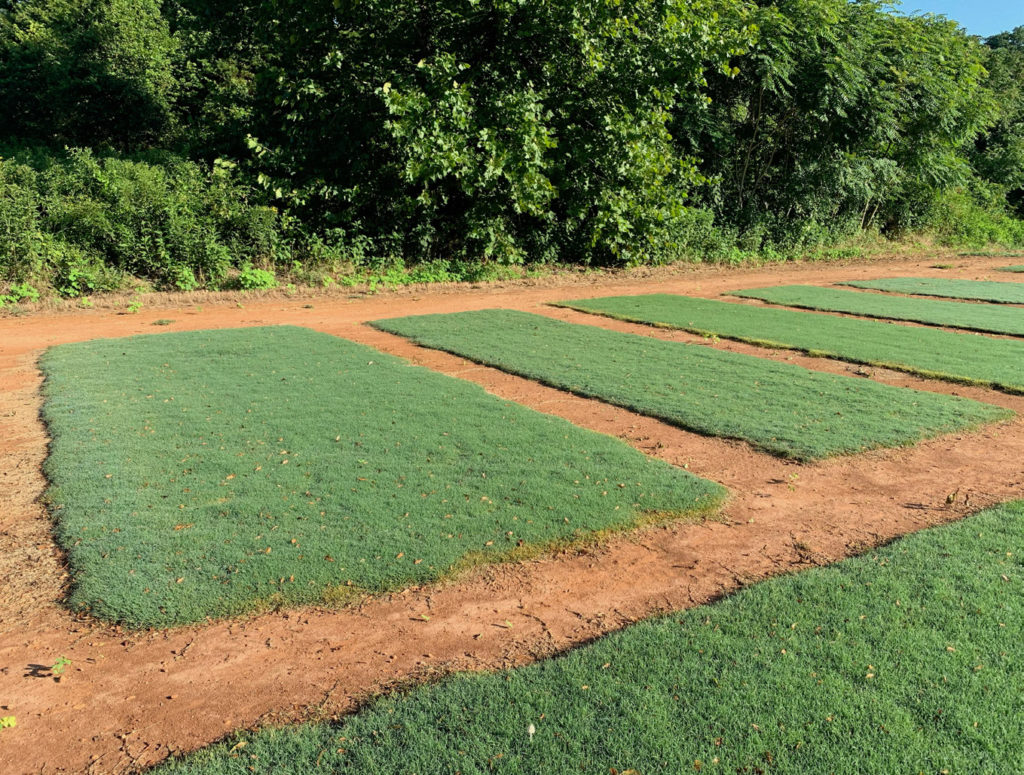

An Interview with Former Mississippi State University Breeder Wayne Philley
1. Tell me about yourself and your family.
I am a native Mississippian. I grew up near Mississippi State University where I have been employed for forty years. My wife, Helen, and I have been happily married for forty years. We have one daughter, Amanda, who currently lives in California with her husband, Matt. At this time we are still awaiting grandchildren. We are both active in our community church.
2. How did you get your start in the turfgrass industry?
I have always believed that God places people where he wants to use them. Immediately after high school I received a two-year associate of arts degree at a local community college. After graduation, I worked in a factory for almost six years until I decided that was a dead-end job. I had been unemployed for two months in 1979 when my wife spotted an ad in a local newspaper seeking applicants for a job with the Mississippi Agricultural and Forestry Experiment Station. Dr. Jeffrey Krans was looking for a field technician to work in turf research. My knowledge of turf science was very limited at that time. He simply wanted someone able to work hard and be willing to learn. The promise of working outdoors appealed to me and I accepted the position when he offered it. I was quickly adopted as a member of the Mississippi State University turf team. That same year I began taking classes in pursuit of a B.S. degree in crop science. As an employee benefit, I was allowed to enroll tuition-free in one class each semester. Very soon I was helping Dr. Krans with laboratory instruction for his turf management class. We began taking germplasm collection excursions together and with his influence, I started to develop a good eye for recognizing turf performance traits as well as an interest in breeding. We were conducting local turf variety trials sponsored by seed companies when the National Turfgrass Evaluation Program (NTEP) was launched. Kevin Morris, the director of NTEP, soon became a good friend. Many NTEP variety trials have been evaluated at Mississippi State University over the last four decades. With the encouragement of Dr. Krans and others, I received an M.S. degree in plant breeding. Crossing different turfgrasses and observing their progeny is an occupation that I have truly loved. God put me in the right place at the right time and gave me the patience to become an experienced turfgrass breeder and evaluator.
3. Talk about your initial interest in breeding from Celebration. What was the impetus for beginning your project?
Most high-quality turf bermudagrass cultivars that are vegetatively propagated for sod production resulted from hybridization between Cynodon dactylon and Cynodon transvaalensis. These interspecific hybrids are sterile—end of the line for further breeding by traditional means. Celebration® Bermudagrass is an exception. It is Cynodon dactylon, which indicated to me that it should be able to produce viable pollen and seed. This would be an opportunity to use a high-performance cultivar as a parent in crosses with the germplasm collection I had assembled over the years, containing both dactylon and transvaalensis genotypes. I proposed this idea to Sod Solutions and an agreement between the company and Mississippi State University was signed into effect.

Celebration X Plots
4. Ten years from now, what do you hope has come from the “Celebration X” program?
Numerous progeny genotypes have been produced from this breeding project. We are now in the evaluation phase. There are no real shortcuts to field evaluations, involving nationwide test sites and years of data collection. Six of these experimental cultivars have been entered in the NTEP 2019 National Bermudagrass Test. The same selections are being planted at sod farms to be evaluated for production and harvestability. Any that perform well will be considered for marketing by Sod Solutions. Mississippi State University will seek patent protection for those selections that Sod Solutions deems suitable for cultivar release. The lifespan of a good bermudagrass cultivar can be dependent on the maintenance of purity. Rigid guidelines will need to be implemented to safeguard against contamination during the necessary rapid expansion to meet a potential worldwide market. I trust the team of Sod Solutions to fully utilize any improvements made by this breeding program. It is my hope that one or more of these cultivars will be successful and will have a beneficial effect on the turf industry, Sod Solutions, and Mississippi State University within the next 10 years.
5. How important is support for turfgrass breeding? Why should people support it?
Public support for turfgrass breeding is extremely important. Turf is an important sector in the economy of today. So much of human outdoor activity is conducted on maintained turf. Homeowners and professional turf managers are constantly seeking improvements. New and better-adapted cultivars must be produced to meet the ever-increasing expectations of higher performance with lower inputs. Breeding improved turfgrasses does not happen overnight. It typically requires years of patient and persistent observation and evaluation. The reward for a breeder comes from being a part of improving the turfgrass industry.


